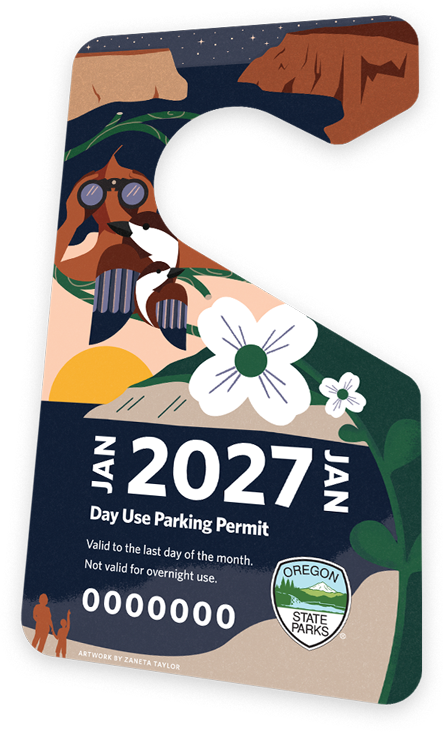Plan your trip to an
Oregon State Park
Event Calendar
5
Mar
Tryon Creek State Natural Area
6
Mar
Fort Stevens State Park
7
Mar
Tryon Creek State Natural Area
7
Mar
Tryon Creek State Natural Area
8
Mar
Tryon Creek State Natural Area
13
Mar
Sunset Beach State Recreation Site
14
Mar
Tryon Creek State Natural Area
21
Mar
Shore Acres State Park
Day-use Parking Permits

Purchase a 12-month parking permit and explore Oregon State Parks all year long. Valid at designated day-use areas where a parking fee is charged.
Our comprehensive guide to all
Oregon State Parks campgrounds,
day-use areas, and heritage sites.